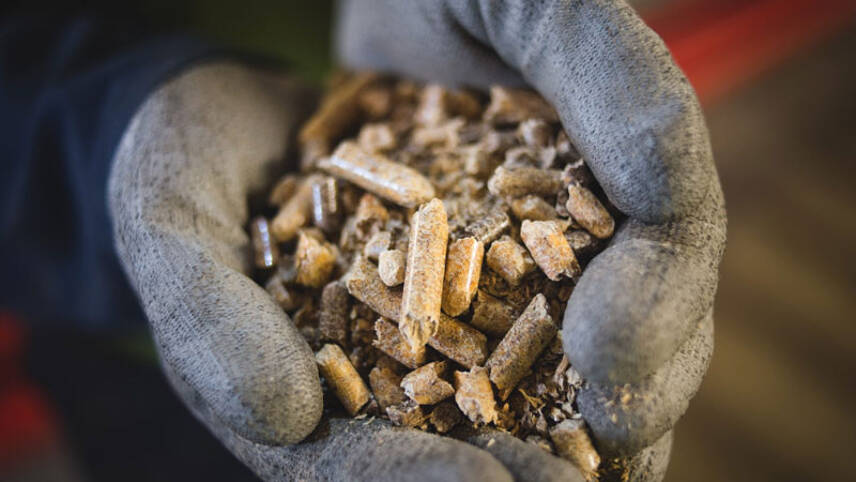Register for free and continue reading
Join our growing army of changemakers and get unlimited access to our premium content

Pictured: Biomass pellets. Image: Drax Group
Green Alliance’s updated briefing paper on BECCS technologies is set to inform Ministers’ decisions on whether to extend subsidies for biomass beyond 2027 – as well as a more strategic assessment of which carbon-negative technologies should contribute to the nation’s delivery of its legally binding climate targets.
It urges the Government to avoid “locking-in” large BECCS projects, such as the one recently granted Government approval for development at Drax’s power station in Selby, “too early”.
Its reasoning partly rests in the fact that other carbon capture and greenhouse gas removal options are evolving at pace and likely to soon be more commercially viable than large-scale BECCS.
The briefing notes that enhanced rock weathering and electrochemical ocean carbon removal “make it increasingly likely that the UK would be able to meet its GGR goals without resorting to power BECCS”.
It adds: “If it was considered desirable, it could be possible to avoid using BECCS altogether once these options reach their maximum realistic potential.”
Enhanced rock weathering involves accelerating the natural process of silicate rocks reacting with CO2 in rainwater by spreading crushed versions of these rocks on land. It is a method backed by businesses including tech giant Microsoft and venue operator AEG.
Electrochemical ocean carbon removal, meanwhile, boosts ocean alkalinity enabling enhanced absorption of CO2 from the air. Absorbed CO2 can then be converted into bicarbonate and carbonate solids.
Green Alliance expects these options to become cost-competitive with BECCS by the early 2030s. The group also touted the potential for these alternatives to bear a lower environmental footprint than BECCS, due to a reduction in energy needed for processes plus the avoidance of a need to procure biomass pellets.
Most biomass used in the UK is imported, the think-tank’s briefing noted, “leaving the country exposed to significant uncertainty around future supply and costs” and making assurances against deforestation challenging.
Supply chain investigation
The briefing from Green Alliance is timely given that this week’s episode of BBC Panorama focused on deforestation in Drax’s wood pellet supply chains.
Papers obtained by the broadcaster showed that the company last year used wood from rare old-growth forests in British Colombia, Canada. This wood was predominantly acquired indirectly, from timber companies.
Wood from this region accounted for 2.5% of the fuel for the Selby power station in 2023.
Drax, in response, claimed that all of its wood pellets are “sustainable and legally harvested”. It also pointed to a decision taken late last year to end direct sourcing from harvest sites overlapping with old growth deferral areas.
Drax also pointed to its biomass procurement strategy, which was updated in 2019 after plaintiffs from six countries filed a lawsuit with the European General Court in Luxembourg, claiming that forest-grown wood shouldn’t be counted as a source of renewable energy under the EU’s 2018 Renewable Energy Directive (RED) II.
Environmental groups are now seeking to take the UK Government to court for its classification of BECCS as renewable and its subsidising of the technology as such.
Related feature: Are loopholes looming in government plans to scale carbon capture?


Please login or Register to leave a comment.